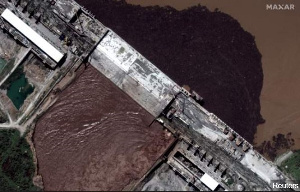Africa’s largest refinery to finally begin operations as Dangote receives initial crude

This is according to information from S&P Global based on market sources and tanker tracking data.
The OTIS tanker, which loaded a 950,000-barrel cargo of Nigeria’s Agbami crude on December 6, was on its way to Lekki, the nearest land port to Dangote’s offshore crude receiving terminal.
Agbami is one of Nigeria’s most extensive deepwater operations, pumping roughly 100,000 barrels daily under Chevron’s operation. Its product yields a large proportion of naphtha and kerosene.
Production delayed
The production of oil products has been hampered by the shortage of indigenous crude feedstock, even though the refinery was officially completed in May. The refinery has been repeatedly delayed since 2013, when the project was unveiled.
Aliko Dangote, Chairman of the Dangote Group, in a recent report, said that petrol from his 650,000bpd-capacity refinery will be available to Nigerians soon.
With the goal of kickstarting operations, the NNPC, which holds a 20% share in the refinery, recently signed a deal to send 6 million barrels of crude oil to the Dangote refinery in December as feedstock.
Expectations for the refinery
The crude distillation unit is engineered to process three Nigerian crude grades: Escravos, Bonny Light, and Forcados. It is designed to process 12 crudes at once.
Based on earlier Dangote presentations, when the plant is fully operational, it would produce 327,000 barrels of gasoline, 244,000 barrels of gas oil/diesel, 56,000 barrels of jet fuel/kerosene, and 290,000 metric tons of propane/LPG annually.
Nigeria anticipates that the Dangote refinery will assist in reducing its reliance on imported gasoline.
The country’s present refineries are in bad condition and closed for maintenance. Therefore, the government must import between one and two million metric tons of gasoline monthly to meet domestic demand.
S&P Global analysts predict that the refinery won’t reach its maximum capacity until the middle of 2025, while more delays could occur.
S&P Global forecasts that Nigeria will produce more gasoline than it imports until the 2040s because of the new refinery.
Source: mynigeria.com





